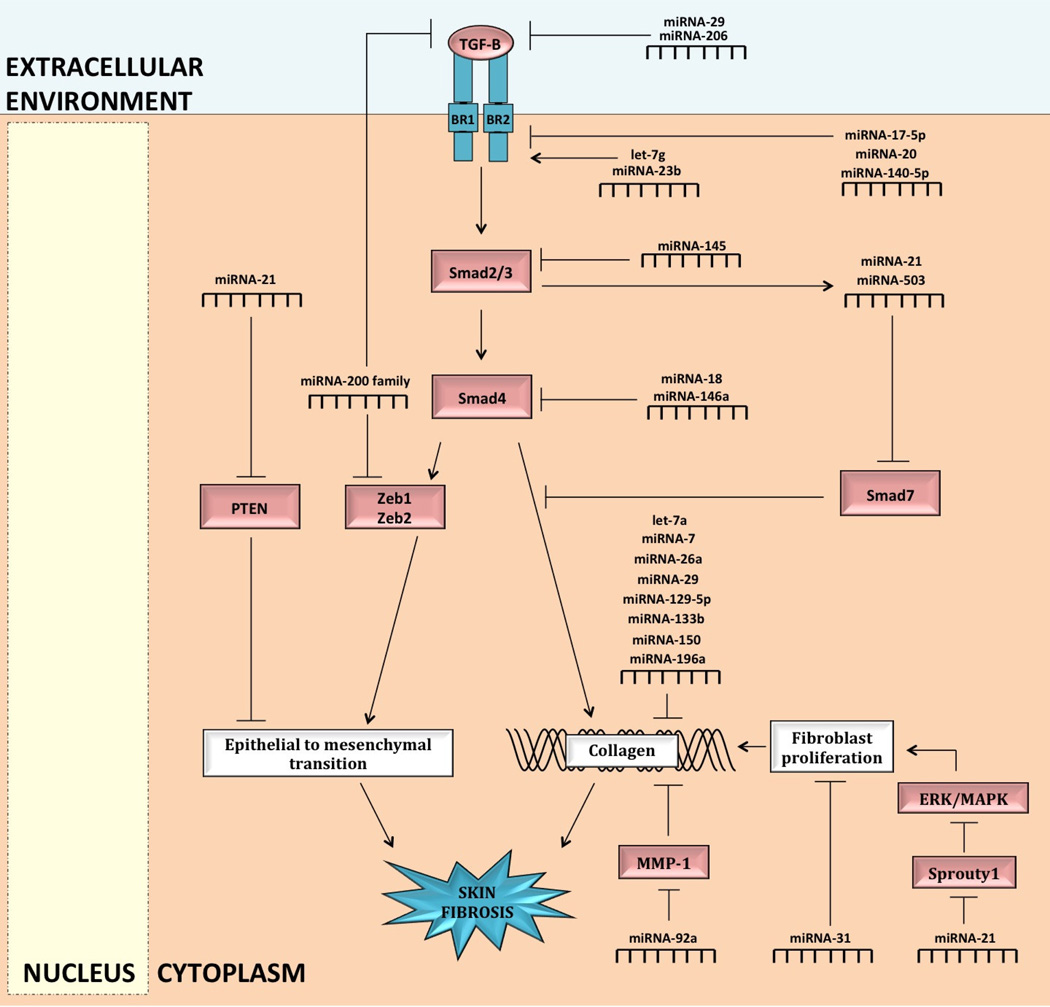Fig. 4.
MiRNA regulation of skin fibrosis in epithelial and fibroblast cells. MiRNA-21 and miRNA-200 modulate skin fibrosis by interacting with transforming growth factor (TGF)-beta signaling to regulate the transition of the epithelial cell into fibroblast cell (epithelial-to-mesenchymal transition or transformation, or EMT). MiRNA-200 inhibits PTEN to promote EMT. MiRNA-200 inhibits the transcription factors, Zeb1 and Zeb2, to antagonize EMT; miRNA-200 is also suggested to inhibit TGF-beta directly. Transforming growth factor (TGF)-beta interacts with the type I (BR1) and type II (BR2) receptors, leading to activation of intracellular Smad2 and Smad3. Smad2 and Smad3 form a complex with Smad4 and regulate the expression of collagen. Smad7 is a recognized antagonist of TGF-beta profibrotic effects. Various miRNAs modulate skin fibrosis by regulating the TGF-beta signaling pathway, directly regulating collagen synthesis and degradation, and modulating fibroblast proliferation.
MMP, matrix metalloproteinase; MAPK, mitogen activated protein kinase; ERK, extracellular receptor kinase

